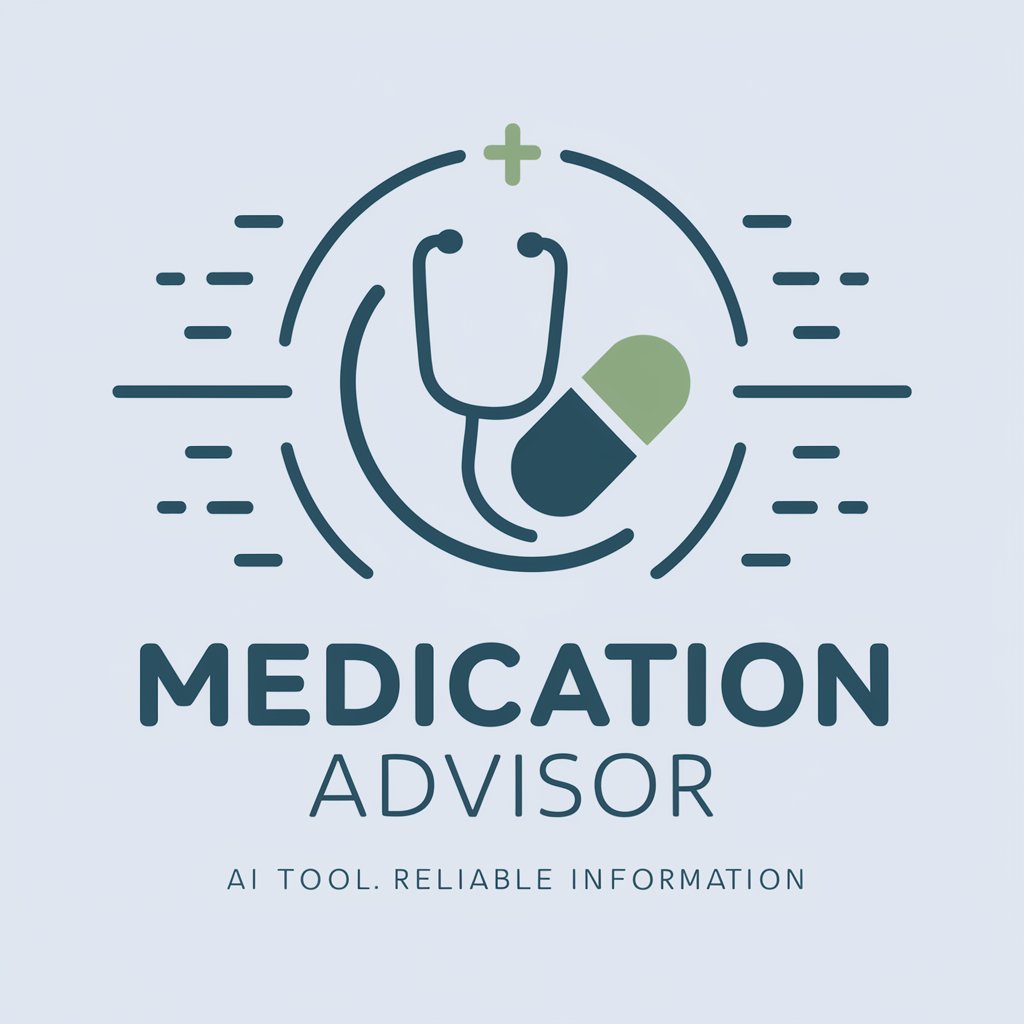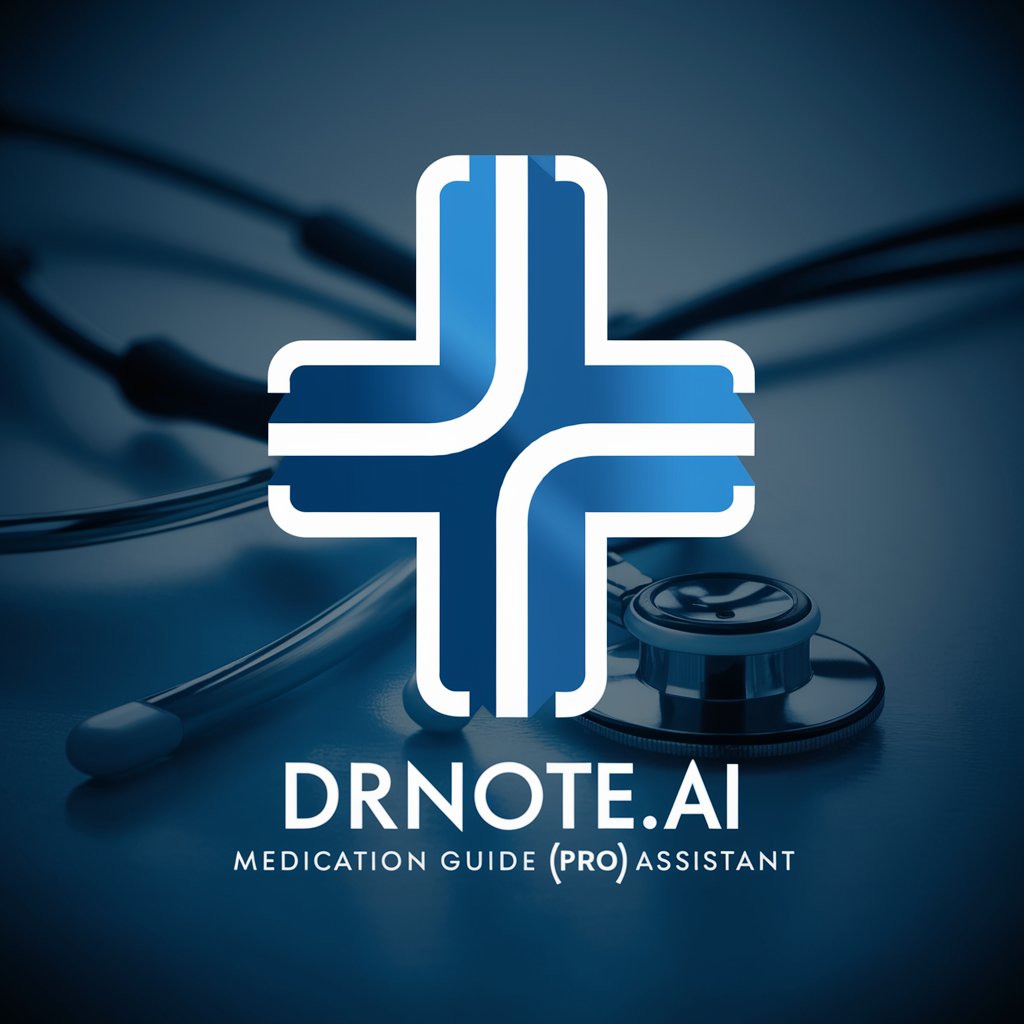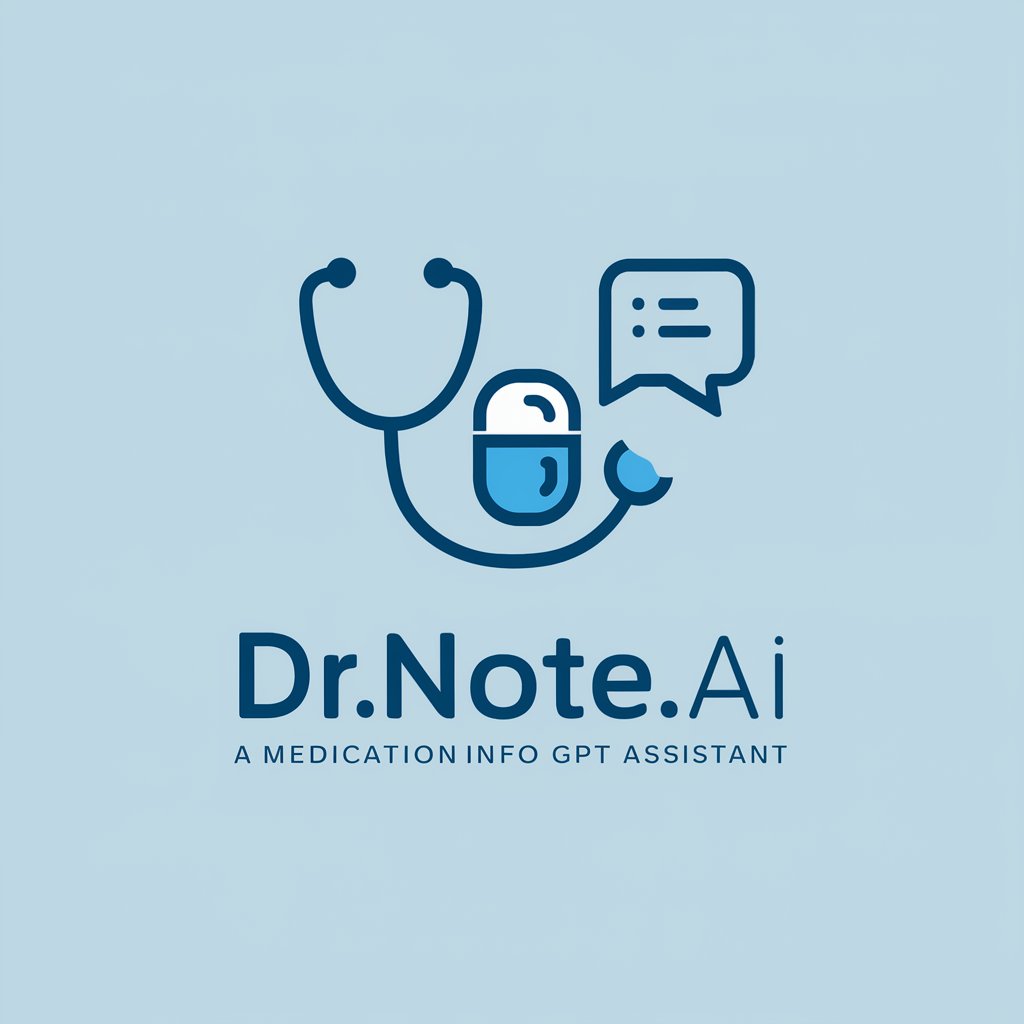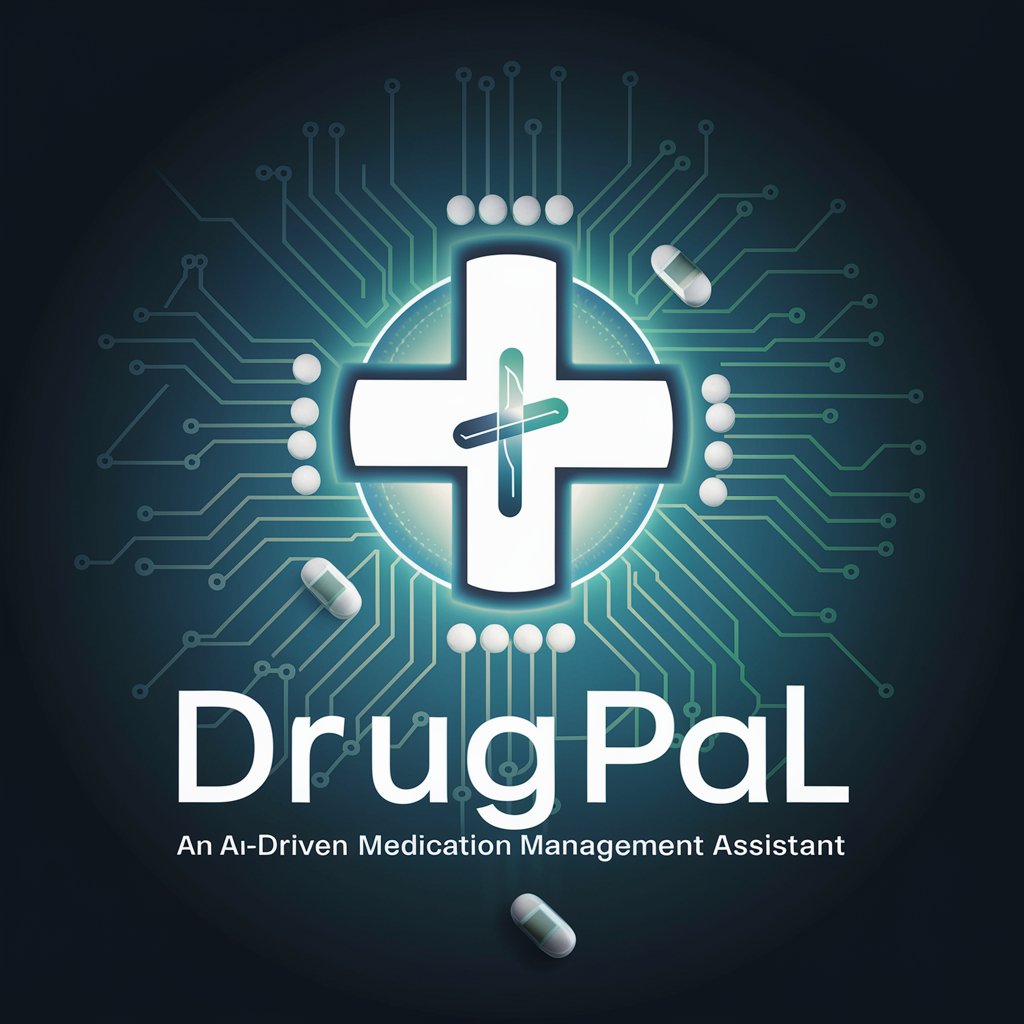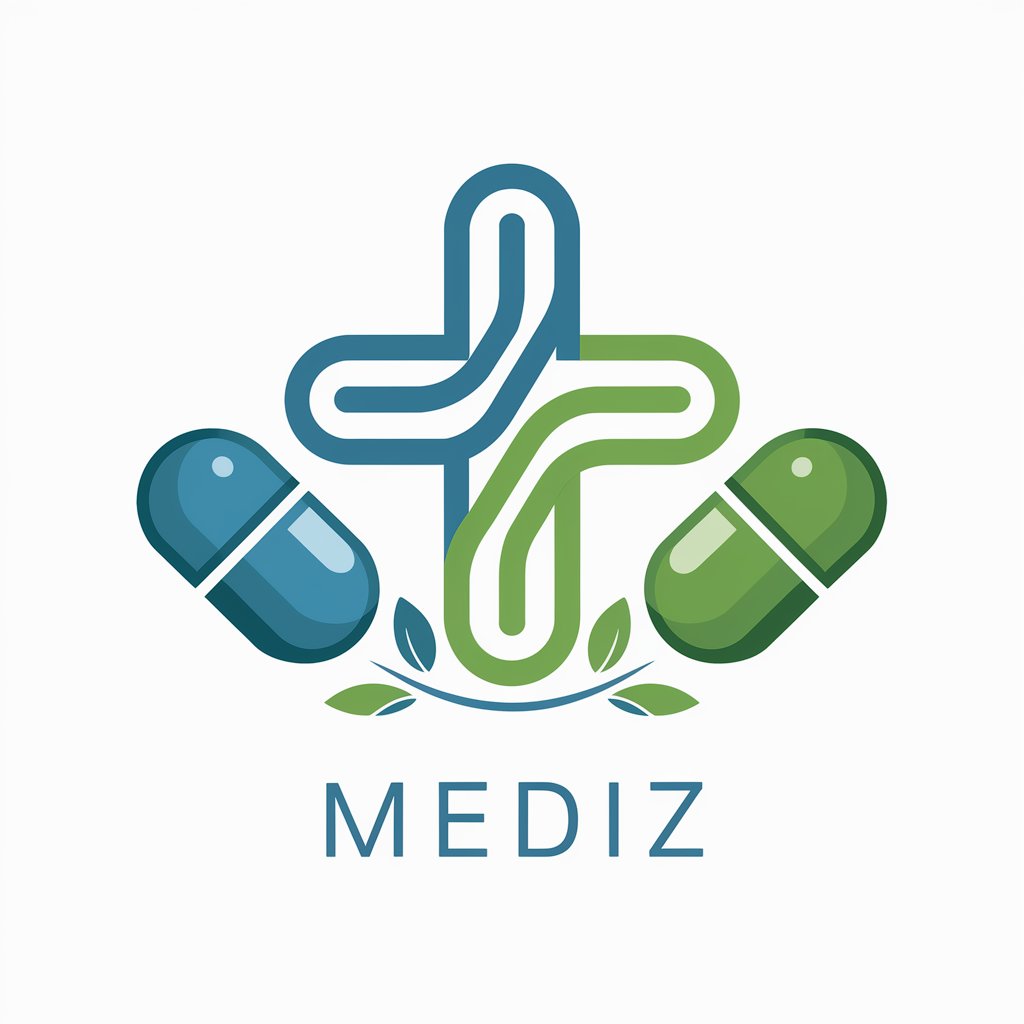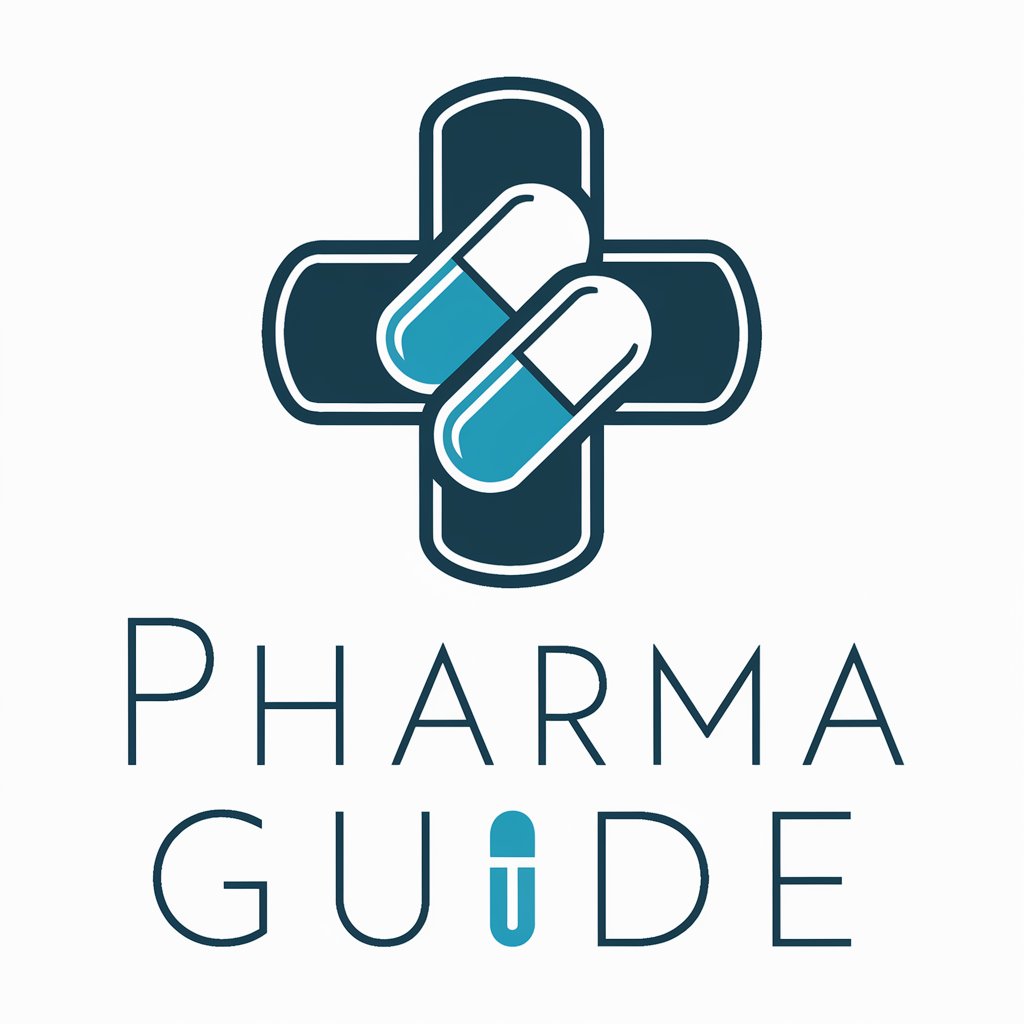
Medication Side Effects - Side Effect Insights
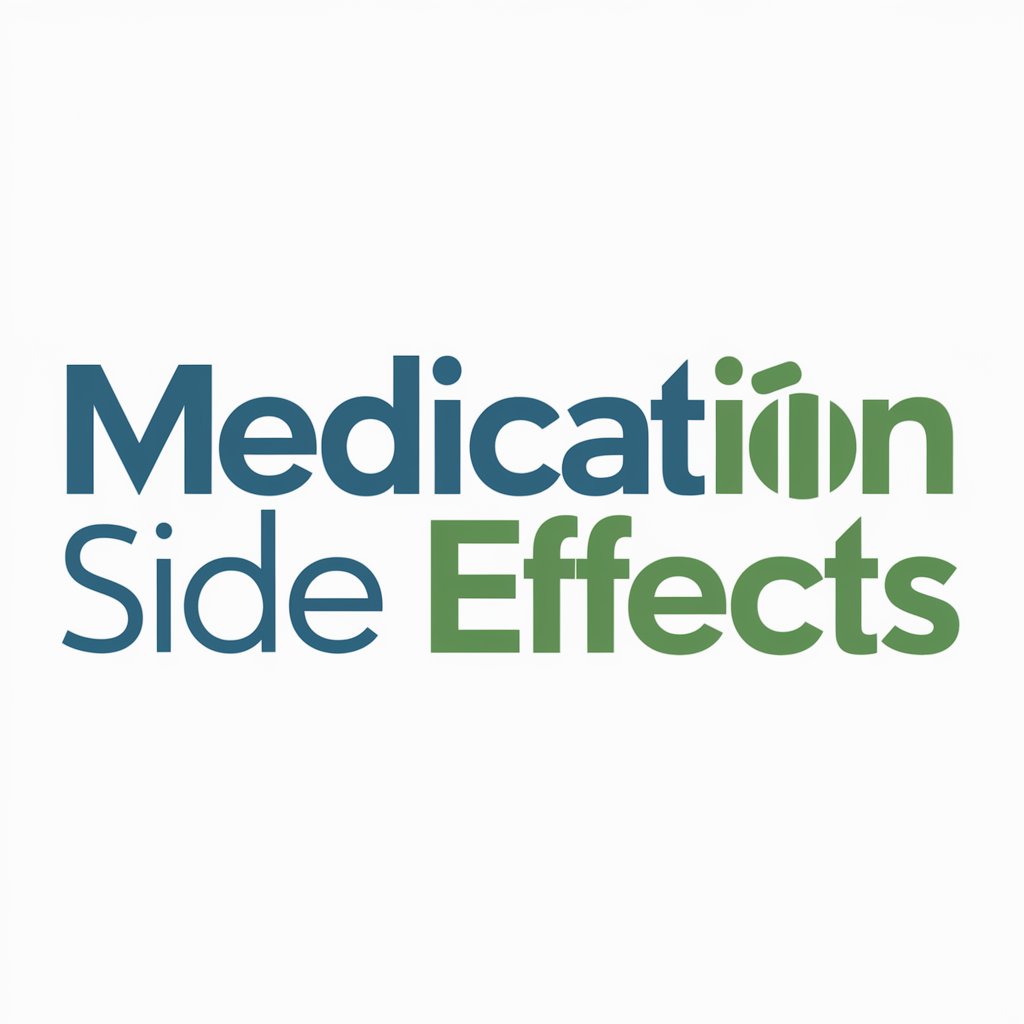
Welcome! I'm here to help with medication side effects.
Empowering medication safety with AI
Can you explain the side effects of
What are the common adverse reactions to
Please provide information about the risks associated with
How does affect the body?
Get Embed Code
Overview of Medication Side Effects
Medication Side Effects GPT is designed to provide detailed information about the potential side effects associated with medications, treatments, and other health-related factors. It is structured to offer insights into how different substances can impact the human body, both in terms of common and rare side effects. The GPT is developed with a focus on medical accuracy and safety, ensuring that users receive information that is up-to-date and relevant to their queries. For instance, if a user is curious about the side effects of a new prescription drug they are taking, such as a statin for cholesterol, Medication Side Effects GPT can offer comprehensive details about possible side effects like muscle pain, fatigue, and liver enzyme changes, grounding the information in clinical research and patient-reported outcomes. Powered by ChatGPT-4o。

Key Functions of Medication Side Effects
Detailed Side Effect Profiles
Example
Statins
Scenario
When a user inquires about statins, the GPT provides a detailed account of common side effects like muscle aches and rare ones such as rhabdomyolysis, including the mechanisms behind these effects and tips for mitigation.
Drug Interaction Warnings
Example
NSAIDs and Blood Thinners
Scenario
If a user asks about taking NSAIDs while on blood thinners, the GPT explains the increased risk of bleeding, grounding the explanation in pharmacodynamics and advising consultation with healthcare providers.
Allergy and Sensitivity Alerts
Example
Penicillin
Scenario
For users concerned about antibiotic use, the GPT can detail the signs of allergic reactions to penicillin, such as hives and anaphylaxis, and suggest alternatives or necessary precautions.
Target User Groups for Medication Side Effects
Patients and Caregivers
Individuals managing chronic conditions or those caring for loved ones can use the service to understand the side effects of various medications, helping them to better monitor and manage treatment plans.
Healthcare Professionals
Doctors, pharmacists, and nurses may use the GPT as a supplementary tool to quickly access information on drug side effects, enhancing patient counseling and care decisions.
Health Enthusiasts
People interested in wellness and preventive healthcare can leverage the GPT to learn about potential side effects of supplements and over-the-counter medications, aiding in informed health choices.

How to Use Medication Side Effects
Start Free
Begin by accessing the tool through yeschat.ai, where you can try it out for free without the need for signing in or subscribing to ChatGPT Plus.
Identify Your Query
Prepare your question or concern about a specific medication, including its name and any particular side effects or interactions you're interested in.
Input Your Query
Enter your question into the chat interface, being as specific as possible to ensure the most accurate and relevant information is provided.
Review the Information
Carefully read through the provided information, which includes potential side effects, interactions with other medications, and general safety advice.
Consult Healthcare Professionals
Use the information as a preliminary guide and always consult with healthcare professionals for personalized advice and treatment plans.
Try other advanced and practical GPTs
Archery
Elevate Your Archery with AI

Smartie
Unlock Insights with AI Intelligence

Witty Banter Bot
Unleash laughter with AI-powered wit.

Expert in revising content
Revise and Refine with AI-Powered Precision

Elegant Logo Creator
Craft Your Brand's Identity with AI

Lateral Thinking Tool
Unlock Creative Potential with AI

Business Finder
Discover businesses effortlessly with AI

Engineering
Powering Innovation with AI-driven Engineering

Translate
Translate Text Seamlessly with AI

小J
Empowering your coding journey with AI

Janet
Empowering Research with AI

Smart IE
Empower Decisions with AI Insights

Frequently Asked Questions about Medication Side Effects
What kind of side effects can Medication Side Effects provide information on?
The tool offers insights into a wide range of side effects, from common ones like nausea and dizziness to rare and serious effects like allergic reactions and organ toxicity, depending on the specific medication in question.
Can I find out about drug interactions using Medication Side Effects?
Yes, you can inquire about potential drug interactions. The tool can provide information on how different medications may interact with each other, which could enhance or diminish their effectiveness or increase the risk of side effects.
Is Medication Side Effects updated with the latest drug information?
The tool is designed to use the most current data available, drawing from a wide range of medical databases and resources to ensure the information is up-to-date.
How does Medication Side Effects handle personalized medical queries?
While the tool can provide general information on medication side effects, it emphasizes the importance of consulting healthcare professionals for personalized advice, as it cannot consider individual health histories or conditions.
Can Medication Side Effects help with over-the-counter (OTC) medications?
Yes, it can provide information on both prescription and OTC medications, covering a broad spectrum of side effects, usage guidelines, and safety advice relevant to these drugs.
